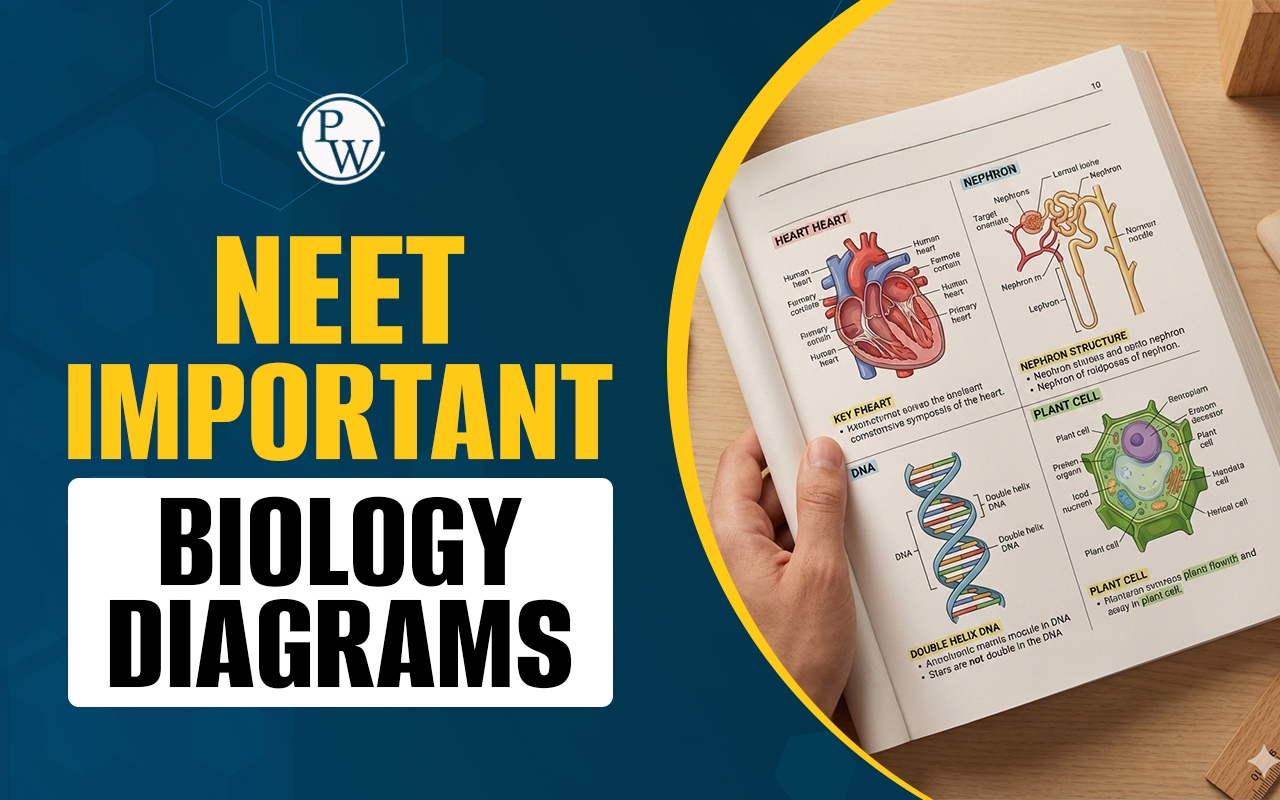
Significance of Meiosis lies in its crucial role in sexual reproduction and genetic diversity. This process not only produces gametes—sex cells necessary for reproduction—but also ensures the maintenance of the species-specific chromosome number across generations. The significance of meiosis is crucial for students preparing for the NEET exam and is an important topic within the NEET biology syllabus .
Meiosis Definition
Meiosis is a specialized type of cell division that occurs in sexually reproducing organisms, resulting in the production of gametes—sperm and eggs. This process is essential for maintaining the specific chromosome number characteristic of each species across generations. Unlike mitosis, which produces two identical daughter cells, meiosis leads to the formation of four genetically distinct haploid cells, each containing half the number of chromosomes of the original diploid cell.Types of Meiosis
Meiosis can be classified into three main types based on the relationship between the mother and daughter cells:- Gametic Meiosis : This type occurs in diploid cells to produce haploid gametes. The haploid cells generated through gametic meiosis are essential for sexual reproduction , as they fuse during fertilization to restore the diploid chromosome number.
- Zygotic Meiosis: In haploid organisms such as algae and fungi, meiosis occurs in the zygote, which is the fertilized cell. This process results in the production of haploid cells that develop into young haploid organisms, contributing to the life cycle of these organisms.
- Sporic Meiosis: Found in plants like bryophytes, sporic meiosis occurs in the diploid cells of the sporophyte's capsule. This division leads to the production of haploid spores, which can germinate and develop into haploid gametophytes. This alternation of generations is a critical aspect of plant reproduction.
Features of Significance of Meiosis
Meiosis involves two divisions—meiosis I, which reduces chromosome numbers by half, and meiosis II, which separates sister chromatids. It promotes genetic diversity through recombination and can result in conditions like trisomy or monosomy if chromosomes fail to separate properly.- Two Divisions : Meiosis consists of two stages—meiosis I (reductional division) and meiosis II (equational division).
- Meiosis I : Reduces the chromosome number by half; homologous chromosomes pair and exchange genetic material through recombination.
- Meiosis II : Resembles mitosis; separates sister chromatids, producing four haploid daughter cells.
- Genetic Recombination : Increases genetic diversity through the exchange of genetic material between homologous chromosomes.
- Nondisjunction : Failure of chromosome separation in anaphase I can lead to gametes with abnormal chromosome numbers, causing genetic disorders like trisomy or monosomy.
Significance of Meiosis
Meiosis produces gametes, maintains chromosome numbers, and increases genetic diversity through crossing over and independent assortment. It also introduces mutations that drive evolution and natural selection.- Formation of Gametes : Meiosis produces sex cells (gametes) necessary for sexual reproduction.
- Activates Genetic Information : Activates genes for sex cell development and deactivates sporophytic genes.
- Maintains Chromosome Number : Halves chromosomes to maintain a constant number, preventing doubling after fertilization.
- Independent Assortment : Randomly distributes maternal and paternal chromosomes, reshuffling traits.
- Genetic Mutation: Mutations from meiotic irregularities can lead to genetic variation, with beneficial mutations passed through natural selection.
- Crossing Over : Creates new combinations of traits, increasing genetic diversity and variation.
MCQs of Significance of Meiosis
Q1. Meiosis is evolutionary significant because it results in:-
- Genetically similar daughters
- Four daughter cells
- Eggs and sperms
- Recombination
Q2. Meiosis II is:
- reductional
- Equational
- Both (1) and (2)
- None of these
Q3. The maximum number of meiosis required to produce 40 seeds are;
- 50
- 100
- 40
- 20
Answers of MCQs of Significance of Meiosis
Ans1. Recombination| NEET Exam Important Links | |
|---|---|
| NEET Biology Syllabus | NEET Biology Diagrams |
| NEET Biology MCQ | NEET Biology Chapter wise Weightage |
| NEET Biology Notes | NEET Previous Year Question papers |
Significance of Meiosis FAQs
Q. What is the significance of meiosis?
Ans. The significance of meiosis lies in its role in producing gametes and maintaining the genetic integrity of species. It allows for genetic diversity, which is crucial for adaptation and evolution.
Q. What are the four significance of mitosis?
Ans. The significance of mitosis includes Growth and Development, Tissue Repair, Asexual Reproduction, and Genetic Consistency.
Q. What is the significance of meiosis and mitosis?
Ans. Both meiosis and mitosis are essential for life; meiosis produces gametes and promotes genetic diversity, while mitosis supports growth, repair, and asexual reproduction by creating identical daughter cells.
Q. What's the importance of meiosis?
Ans. Meiosis is crucial for sexual reproduction, maintaining chromosome numbers, and fostering genetic diversity within populations, which is vital for adaptation and survival.
Q. What is the most important process of meiosis?
Ans. The most important processes of meiosis are crossing over and independent assortment, which contributes to genetic diversity by reshuffling alleles and traits during gamete formation.
Talk to a counsellorHave doubts? Our support team will be happy to assist you!

Check out these Related Articles
Free Learning Resources
PW Books
Notes (Class 10-12)
PW Study Materials
Notes (Class 6-9)
Ncert Solutions
Govt Exams
Class 6th to 12th Online Courses
Govt Job Exams Courses
UPSC Coaching
Defence Exam Coaching
Gate Exam Coaching
Other Exams
Know about Physics Wallah
Physics Wallah is an Indian edtech platform that provides accessible & comprehensive learning experiences to students from Class 6th to postgraduate level. We also provide extensive NCERT solutions, sample paper, NEET, JEE Mains, BITSAT previous year papers & more such resources to students. Physics Wallah also caters to over 3.5 million registered students and over 78 lakh+ Youtube subscribers with 4.8 rating on its app.
We Stand Out because
We provide students with intensive courses with India’s qualified & experienced faculties & mentors. PW strives to make the learning experience comprehensive and accessible for students of all sections of society. We believe in empowering every single student who couldn't dream of a good career in engineering and medical field earlier.
Our Key Focus Areas
Physics Wallah's main focus is to make the learning experience as economical as possible for all students. With our affordable courses like Lakshya, Udaan and Arjuna and many others, we have been able to provide a platform for lakhs of aspirants. From providing Chemistry, Maths, Physics formula to giving e-books of eminent authors like RD Sharma, RS Aggarwal and Lakhmir Singh, PW focuses on every single student's need for preparation.
What Makes Us Different
Physics Wallah strives to develop a comprehensive pedagogical structure for students, where they get a state-of-the-art learning experience with study material and resources. Apart from catering students preparing for JEE Mains and NEET, PW also provides study material for each state board like Uttar Pradesh, Bihar, and others
Copyright © 2026 Physicswallah Limited All rights reserved.









